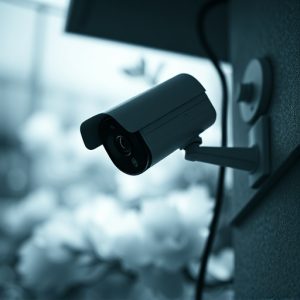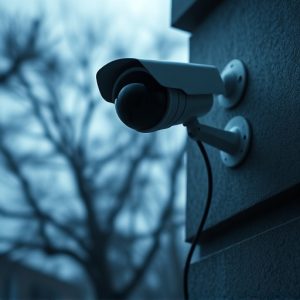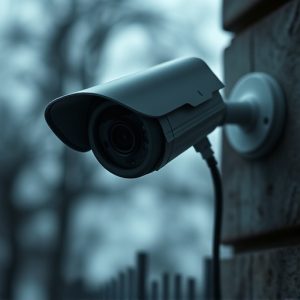Securing Your Space: A Guide to Hidden Security Camera Usage and Legal Implications
Hidden security cameras offer a sophisticated and aesthetically pleasing surveillance solution for h…….
Hidden security cameras offer a sophisticated and aesthetically pleasing surveillance solution for homes, providing high-definition, night-vision equipped recording capabilities around the clock. These discreet devices can be accessed remotely via smartphones or computers, allowing homeowners to monitor their property in real-time from any location. Enhanced features include motion detection and real-time alerts that trigger immediate notifications, aiding in a swift response to any suspicious activity. When installing such cameras, it's imperative to comply with local privacy laws and ensure ethical considerations are met, respecting the privacy rights of all occupants and avoiding psychological distress. Consent from all individuals within the home is essential, and their use should be transparent to prevent legal issues and uphold moral standards. In essence, the successful deployment of hidden security cameras in residential settings requires a balance between advanced surveillance technology and adherence to both legal and ethical privacy frameworks.
When safeguarding your home, a strategic approach often involves discreet monitoring. Hidden security cameras offer a covert layer of protection, blending seamlessly into your living environment without drawing attention to their presence. This article delves into the multifaceted role these devices play in enhancing home surveillance. From their advanced features and benefits to the critical legal and ethical considerations, understanding the intricacies of hidden cameras is paramount for homeowners seeking a proactive security solution. Join us as we navigate the nuances of maintaining privacy and security within your sanctuary.
Understanding Hidden Security Cameras: Features and Benefits for Enhanced Home Surveillance
Hidden security cameras offer a discreet yet effective solution for home surveillance, blending into the environment while providing high-quality visual monitoring. These devices are designed with stealth in mind, ensuring they remain undetected to deter potential intruders and maintain privacy within the home. A key feature of hidden security cameras is their ability to record in high-definition resolution, capturing clear footage that can be crucial during an investigation. They often come equipped with night vision capabilities, allowing for continuous monitoring even in low-light conditions.
Moreover, these cameras are typically Wi-Fi enabled, providing remote access and live streaming to smartphones or computers. This feature allows homeowners to monitor their property from anywhere at any time, offering peace of mind when away from home. Advanced models may include motion detection and real-time alerts that notify the user via app notifications, ensuring immediate response to unusual activity. The benefit of hidden cameras lies in their unobtrusive presence; they protect without altering the aesthetic of the home, a significant advantage for those who wish to maintain a minimalist or design-centric living space while safeguarding their property.
The Legal and Ethical Considerations of Implementing Hidden Security Cameras in Your Home
concealed security cameras within one’s residence necessitate a careful examination of both legal and ethical implications. From a legal standpoint, it is imperative to comprehend the privacy laws applicable in your jurisdiction, as unauthorized surveillance can lead to significant legal repercussions. Laws differ by region, with some areas mandating explicit consent from all occupants before installing recording devices. In addition, failure to inform houseguests or renters could result in charges of invasion of privacy.
Ethical considerations extend beyond mere legality; they involve the moral responsibilities of the homeowner. A key factor is the expectation of privacy within one’s home, which must be respected. Hidden cameras should be used judiciously and ethically to protect property, not to invade the privacy of family members or guests. It is essential to consider the potential psychological impact on those unaware they are being recorded. Conversely, if the cameras are used transparently for security purposes with the knowledge and consent of all parties involved, they can serve as a deterrent against theft or other malicious activities without infringing upon personal rights. Thus, the decision to install hidden security cameras must be made with a balanced approach that respects both the law and ethical standards, ensuring that any surveillance is conducted responsibly and with clear intentions for safeguarding one’s home.


